[Video Transcript]
Welcome to this Talk About
I want to give you some ideas today on how you can find out what your competitors are doing.
The first challenge is to find out who they are and how do you find them?
You want to know what they’re doing because you want to see what campaign is running with their marketing.
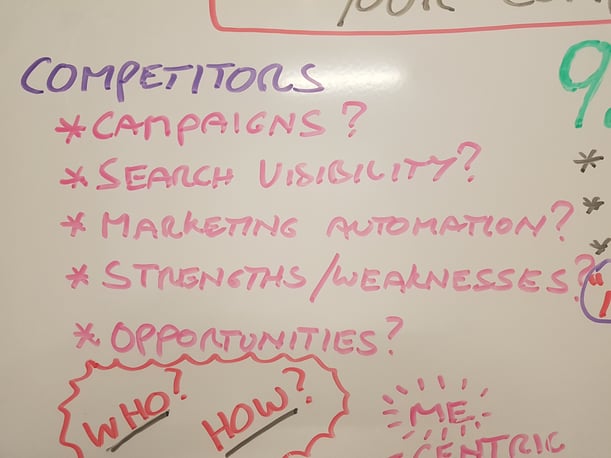
What they are search visibility is like on the search engines on Google compared to yours?
Are they using marketing automation? If they are not, you have immediately got an advantage over them and if they are, you can see what they are doing and whether it is up to scratch.
What are the strengths and weaknesses in their content marketing strategy? And are there any opportunities that they’ve spotted that you might be missing out on.
So, there is a lot to see and a lot to be gained from finding out who your competitors are.
But here’s a challenge…
Obviously, there are those people that you bump up against. For example, if you are in a business where you are pitching with regard to tenders, and you might repeatedly find that a particular competitor has knocked you off, well you know who they are.
But what about online?
Now here’s the thing …
When you go to search online for your competitors, the natural temptation is to sit down and Google about what you sell.
- So, if you are in air-conditioning, you are going to go air-conditioning installations
- If you sell swimming pools, you’ll Google swimming pool install
- If you are a tyre repair workshop, it’s tyre repair workshops
- And so it goes.
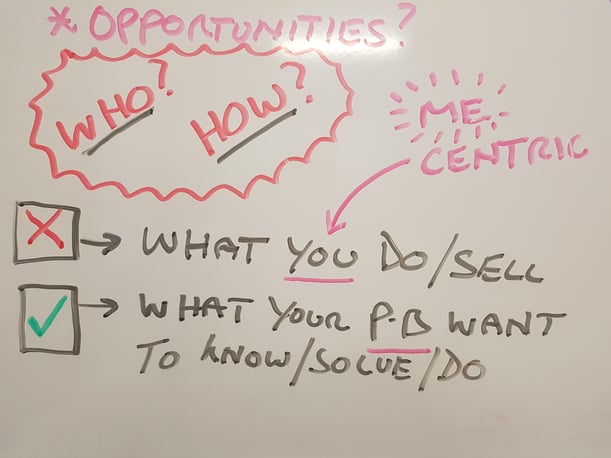
And that will give you an indication of who comes up as your competitors, so yes by all means do that but I’m giving it “the cross in this box”.
The reason is, that technique of research is fundamentally flawed as it is “me centric”, it is about your favourite subject, which is “you”, it’s about “you” and what “you do”.
Okay, I fix lights and I’m looking for the light repair guy, that’s fine, but 92% of people according to Google are not searching that way.
They are using long-tail searches, looking to find out answers about their problems and their questions. So, if you’re just looking here, you won’t be getting a true picture of who your competitors REALLY are.
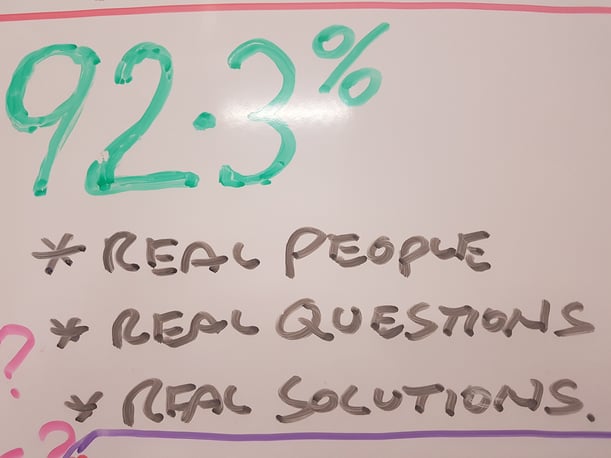
You need to search “here” to find out what you really are up against on Google.
So, let’s unpack a bit more. You need to think about “real” people, who have “real” problems, and who are looking for “real” answers and make those searches to find out who is coming in your particular sector.
I have just pulled an example here, from some research that I was doing recently for someone who provides in home care for people who are elderly.
Right, they do two things, they provide in home care, as in someone will come and do some cleaning and some cooking and some assistance.
Or they will also help with placements and putting them into a more advanced care facility.
Now, I know that this is an example, but I think you can draw form this, with your own business and have a think about ways to find your own competitors online.
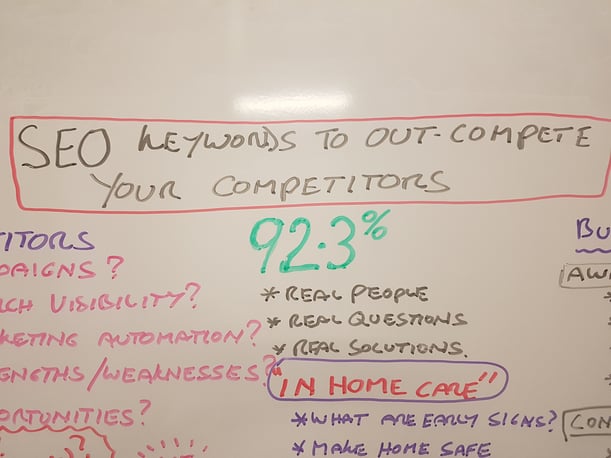
So, the temptation would be to the search box and put, “in home care” and see who comes up. You could say, “Well yeah, they’re my competitors.” But remembering we are looking for real people with real problems and real answers.
Our research has shown that there are people searching for, “early signs of dementia”. There are worried about Mum or Dad and the ways things are going for them.
Or they might be Googling about how to make a home safe for elderly residents.
Or elderly isolation or loneliness because they’re worried about how their elderly parents are going.
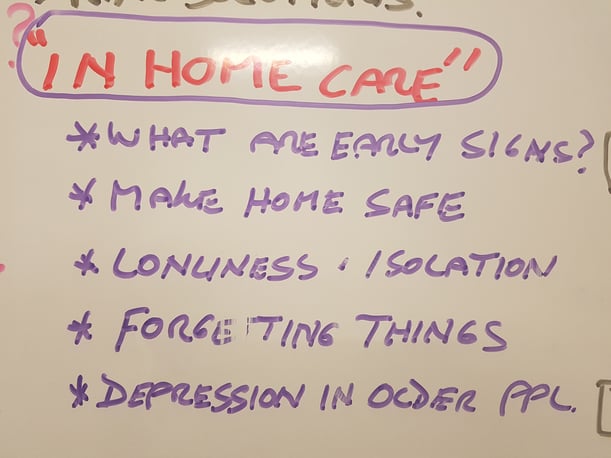
Or they might be searching for things like, “Is it okay for the elderly to be forgetting things?” or for example, they might be searching about depression in older people.
The list goes on. As you can see each of those are EXACTLY the kind of thing that the decision maker or the influencer in that process is likely to be searching for on Google.
Finally, when you are doing this, make sure that you are thinking about the Buyer’s Journey in working out what searches to look for.
There’s the …
- Awareness Stage
- The Consideration Stage
- And the Decision Stage
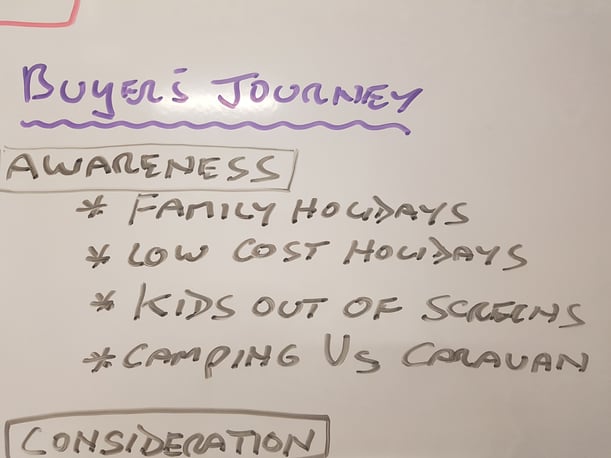
So, for example, if you were selling caravans, which is the example I have put here, in the awareness stage people might be Googling things like …
- Low cost family holidays
- Low cost family activities
Or they’ve moved down the funnel a little bit and they are thinking, “Oh, let’s research camping versus caravanning.” Possibly they will be looking for differences in costs and opportunities and where you can go.
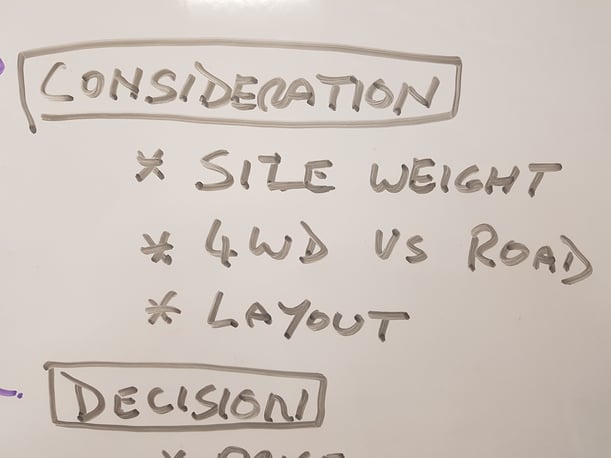
Then at the consideration stage, now they have decided on a caravan and they are thinking about different sizes, different weights or different layouts of bedroom, kitchen and so forth.
And, finally at the decision stage they are looking at price, and delivery availability and packages and so forth. But apply this thinking to your own market and apply the thinking for your own research. It’s a way to find out what your competitors are doing.
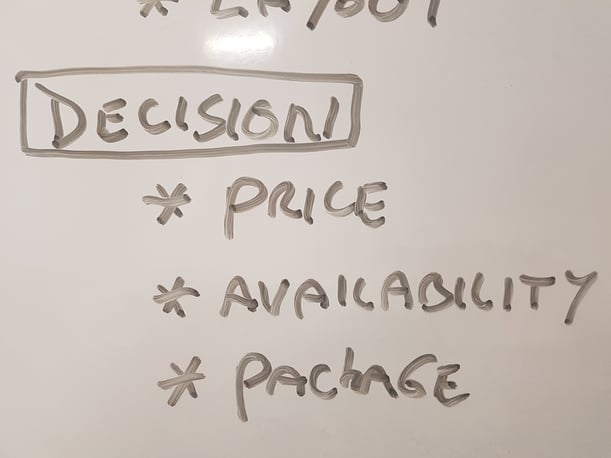
To learn more about the stages of the Buyer’s Journey, we encourage you to download our free eBook that explains more about Inbound Marketing methodology…
And on that subject, if you do have a couple of competitors that are in your face, if you wanted us to have a look at them with you. Get in touch with us and we can have a look together.
We can see what their search visibility looks like and give you an idea of what they are doing with their market automation if they have any. And give you a heads up on what some opportunities can be for you in your market.
I hope that you have found this helpful and we look forward to talking to you again.
Need help with YOUR content marketing strategy?
If you’d like to talk about your current Content Marketing strategy, then please give us a call on 07 3891 3800 or get in touch online.
We are more than happy to have a quick chat (with no charge and no obligation) about what you are doing — and what you could be doing to tweak a few more conversions each week from your website.


















